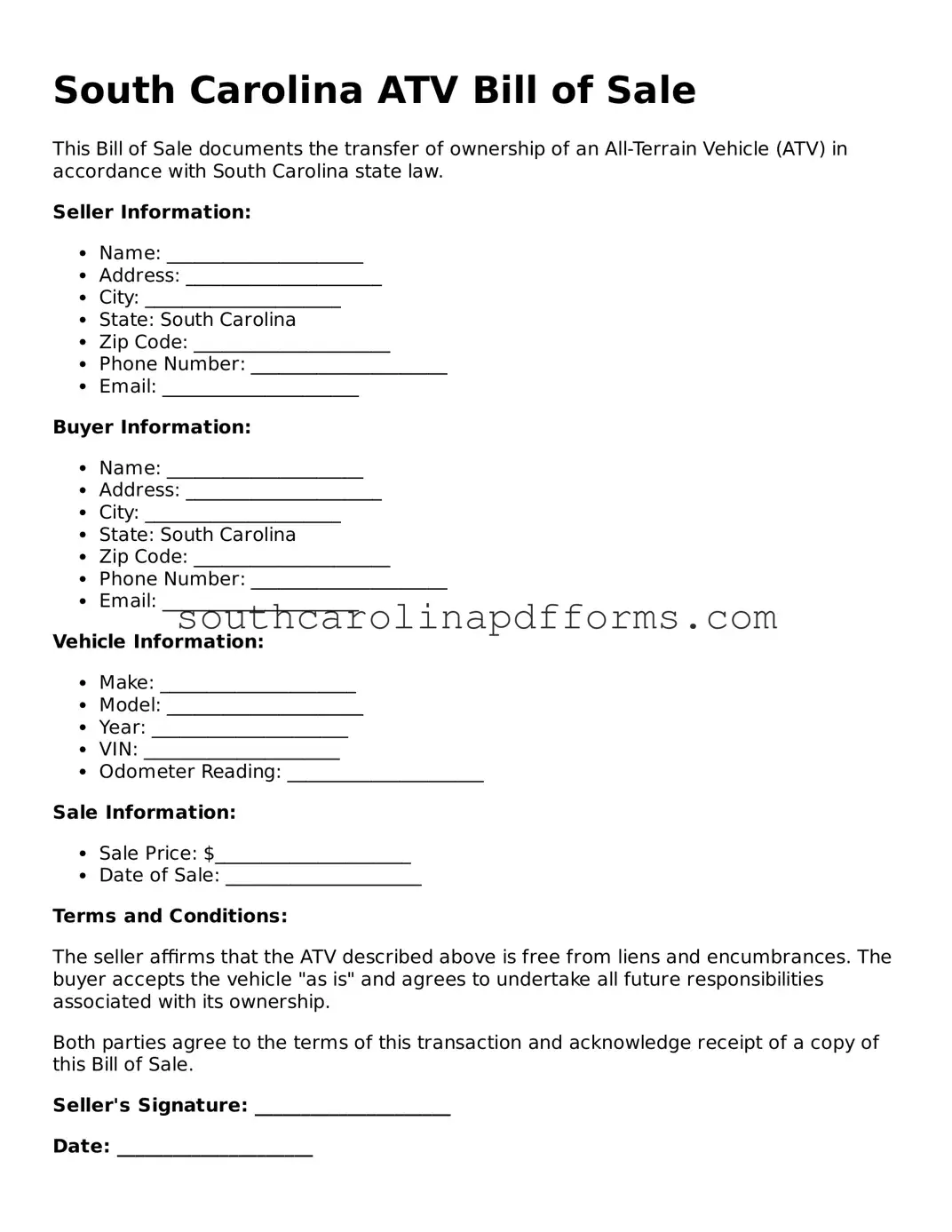Attorney-Approved South Carolina ATV Bill of Sale Document
The South Carolina ATV Bill of Sale form is a legal document that records the transfer of ownership of an all-terrain vehicle (ATV) from one party to another. This form serves as proof of the sale and includes essential details such as the buyer's and seller's information, vehicle description, and sale price. Understanding this form is crucial for both buyers and sellers to ensure a smooth transaction and proper registration.
Access ATV Bill of Sale Here
